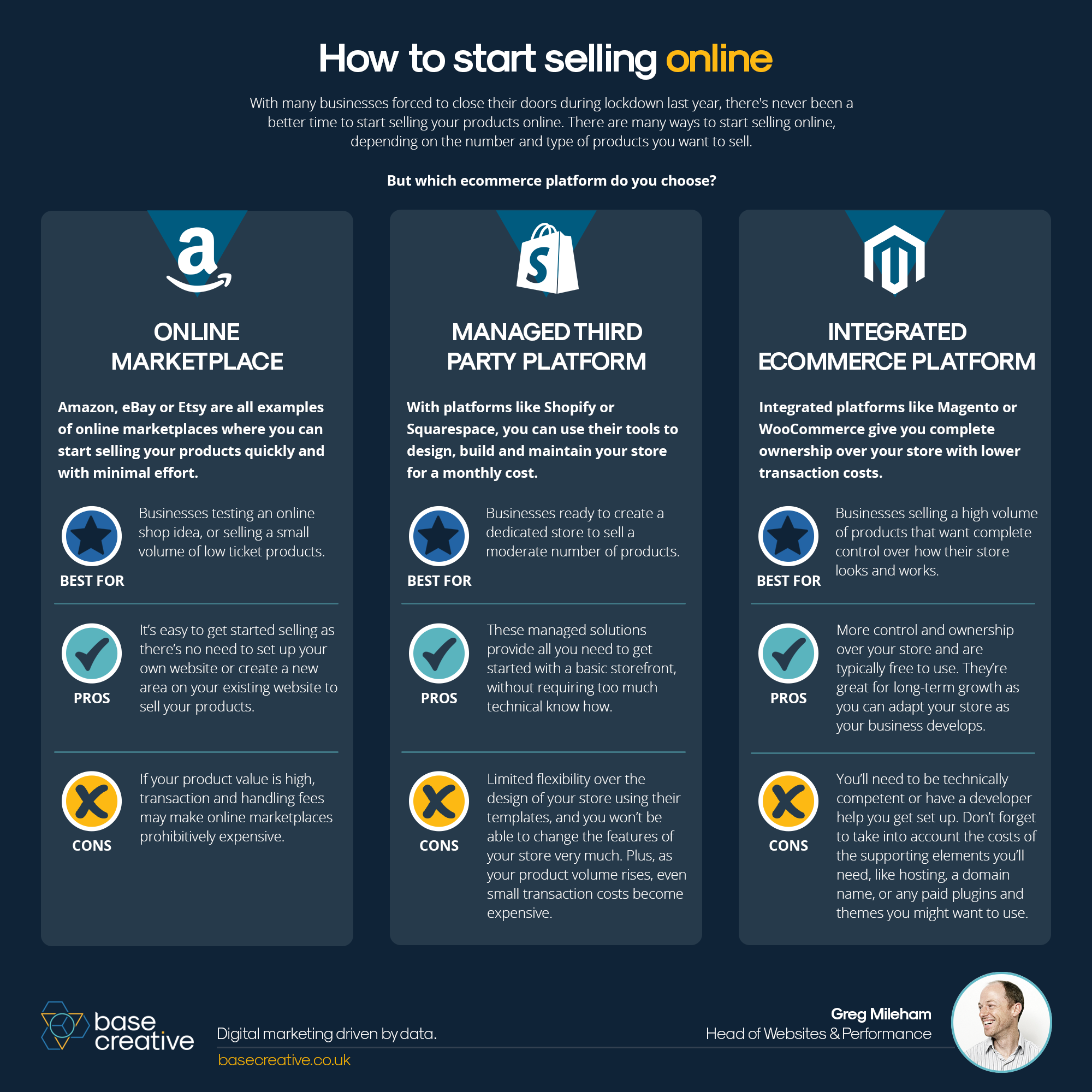TABLE OF CONTENTS
TABLE OF CONTENTS
Other Usefull Contents
You can see many success stories from our customers, and you may be one of them in the future
Unlock the Power of Mobile Commerce: Propel Your Business Forward
Read MoreDiscover how to harness mobile commerce to enhance your business growth. Learn strategies for optimizing the mobile shopping experience and increasing consumer engagement.
Read MoreDiscover the benefits of mobile commerce and how it can transform your business. Learn effective strategies for maximizing sales and customer engagement through mobile-optimized shopping experiences.
Read More














In today's digital landscape, building a marketplace website has become a pivotal endeavor, transforming the way commerce is conducted. A marketplace website serves as a digital platform that connects buyers and sellers, revolutionizing the way commerce is conducted in the modern era. These websites bring together a multitude of vendors, creating a vibrant ecosystem where individuals and businesses can showcase and trade their products or services. One of the key features of marketplace websites is the comprehensive product catalog, which categorizes and organizes offerings, making it easier for buyers to explore and find what they need. Additionally, these platforms incorporate user profiles and ratings to build trust and credibility. User profiles allow sellers to showcase their offerings, while ratings and reviews from previous transactions help buyers make informed decisions. The purpose of building a marketplace website extends beyond facilitating trade. It aims to promote healthy competition among sellers, enhance consumer choice by offering a diverse range of options, and provide convenience and efficiency in the buying and selling process. Moreover, marketplace websites create opportunities for small businesses and entrepreneurs by providing them with a level playing field to reach a larger customer base and grow their ventures. With their comprehensive features and broader purpose, marketplace websites have become an integral part of the digital economy, shaping the way we engage in commercial activities.
Shopify
Shopify is a leading platform known for its user-friendly interface and robust features. It is primarily designed for e-commerce but can also be used to build a marketplace website. With Shopify, you can choose from a wide range of themes and customize them to create a unique marketplace experience. The platform provides integrated payment gateways, inventory management tools, and order tracking features, making it easy for vendors to manage their products and customers. Shopify also offers a secure and reliable infrastructure, ensuring the smooth functioning of your marketplace. Additionally, it provides extensive documentation, support resources, and an active community to assist you in building and growing your marketplace website.
Pros:
Cons:
Cost: Shopify offers various pricing plans starting from $29 per month for the Basic Shopify plan, up to $299 per month for the Advanced Shopify plan. They also offer an enterprise-level plan called Shopify Plus, which has custom pricing based on specific requirements.
Shopify is suitable for a wide range of markets, including e-commerce businesses of all sizes. It caters to various industries, such as retail, fashion, beauty, electronics, and more. Shopify's user-friendly interface and extensive app ecosystem make it accessible to both small businesses and larger enterprises.
WordPress with WooCommerce
WordPress is a versatile content management system that powers a significant portion of the internet. When combined with the WooCommerce plugin, it becomes a powerful platform for building a marketplace website. WooCommerce offers a robust set of features and extensions that enable multi-vendor functionality. Popular extensions like WC Vendors, Dokan, and WCFM Marketplace provide essential marketplace features such as vendor management, product listings, commission settings, and order management. WordPress offers a vast collection of themes and plugins that allow you to customize the appearance and functionality of your marketplace. It also provides a user-friendly interface, extensive documentation, and a strong community, making it an excellent choice for both beginners and experienced users.
Pros:
Cons:
Cost: WordPress itself is a free open-source platform. However, additional costs may include hosting fees, domain registration, and premium themes or plugins. WooCommerce, the e-commerce plugin for WordPress, is free, but there may be costs associated with premium extensions or add-ons.
WordPress with WooCommerce is versatile and can accommodate various markets. It is widely used in e-commerce, including retail, digital products, subscriptions, and services. It is also popular for creating niche markets and specialized online stores.
You may also be interested in:
The Ultimate Guide to Custom E-commerce Website Development
Multi-store E-commerce Solution: What You Need to Know Before Starting
Magento
Magento is a feature-rich and highly scalable e-commerce platform that can be utilized to build a marketplace website. It is well-known for its robustness and flexibility, making it suitable for large-scale marketplaces with complex product catalogs and advanced functionality. Magento offers multi-vendor extensions like Marketplace Multi-Vendor by Webkul and uMarketplace Suite by Unirgy, which enable you to create a thriving marketplace environment. These extensions provide essential features such as vendor management, product listings, order management, and commission settings. Magento also offers extensive customization options, integration capabilities with various payment gateways and shipping providers, and a wide range of themes and templates to create a unique marketplace design. With its enterprise-level features, Magento is particularly suitable for businesses that require advanced functionalities and scalability.
Pros:
Cons:
Cost: Magento offers both a free open-source version (Magento Open Source) and a paid enterprise version (Magento Commerce). The cost of the enterprise version is typically based on your specific requirements and needs, and you will need to contact Magento directly for pricing information.
Magento is known for its scalability and robust features, making it suitable for mid-sized to large-scale marketplaces. It caters to industries such as fashion, electronics, B2B, and global enterprises. Magento is commonly chosen when complex functionalities, extensive customization, and enterprise-level solutions are required
Sharetribe
Sharetribe is a dedicated marketplace platform that focuses on simplicity and ease of use. It offers a comprehensive set of features specifically designed for building marketplaces. Sharetribe handles essential marketplace functions like user management, payments, and listing management out of the box. Its intuitive interface and customizable templates make it a suitable choice for creating niche marketplaces or testing new ideas quickly.
Pros:
Cons:
Cost: Sharetribe offers various pricing plans starting from $79 per month for their Hobbyist plan, up to $299 per month for their Pro plan. They also have custom enterprise plans available for larger marketplaces with specific requirements.
Sharetribe is often used for creating niche marketplaces and sharing economy platforms. It is suitable for markets such as rentals, peer-to-peer services, local communities, and specific industries that require a focused and tailored marketplace solution.
Dokan
Dokan is a WordPress plugin that transforms your WordPress website into a multi-vendor marketplace. It provides a user-friendly interface for vendors to manage their products, orders, and sales. Dokan integrates with popular payment gateways and offers features like front-end product submissions, vendor dashboards, and a comprehensive reporting system. With its extensive set of add-ons, Dokan allows you to extend the functionality of your marketplace as needed.
Pros:
Cons:
Cost: Dokan is a WordPress plugin and offers a range of pricing plans, including a free version with limited features. Their premium plans start from $149 per year for the Starter plan, up to $999 per year for the Professional plan, which includes additional features and support.
Dokan, being a WordPress plugin, is particularly well-suited for creating multi-vendor marketplaces within WordPress. It can cater to various markets, including general e-commerce, digital products, handmade goods, and services. It is suitable for small to mid-sized marketplaces with moderate complexity.
Salesforce Commerce Cloud
Salesforce Commerce Cloud is a robust enterprise-level platform for building marketplaces. It offers powerful features like inventory management, order management, and personalized customer experiences. Salesforce Commerce Cloud provides scalability, security, and integrations with other Salesforce products, making it an excellent choice for large-scale marketplaces that require enterprise-level capabilities.
Pros:
Cons:
Cost: Salesforce Commerce Cloud is an enterprise-level platform, and pricing is based on your specific requirements. It is best to contact Salesforce directly for detailed pricing information and to discuss your business needs.
Salesforce Commerce Cloud is geared towards enterprise-level marketplaces that require advanced features, scalability, and integration with other Salesforce products. It is suitable for larger businesses across industries like retail, B2B, and omnichannel commerce.
OpenCart
OpenCart is an open-source e-commerce platform that can be extended to create a multi-vendor marketplace. With extensions like OpenCart Multi-Vendor Marketplace by Purpletree and iSenseLabs MultiMerch, you can add multi-vendor functionality to your OpenCart store. OpenCart provides a straightforward user interface, various payment gateways, and a wide range of themes to create a unique marketplace.
Pros:
Cons:
Cost: OpenCart is a free open-source platform, but you may need to consider costs for hosting, domain registration, and premium themes or extensions. The pricing for multi-vendor extensions like OpenCart Multi-Vendor Marketplace by Purpletree or iSenseLabs MultiMerch can vary and is typically based on your specific requirements.
OpenCart is often chosen for small to mid-sized marketplaces in industries such as retail, electronics, and fashion. It offers a range of extensions and themes to customize the platform to suit specific market needs.
You may also be interested in:
Multi-vendor Website Development - The Ultimate Guide 2023
Joomla with HikaMarket
Joomla is a versatile content management system that, when combined with the HikaMarket extension, becomes a powerful platform for building a multi-vendor marketplace. HikaMarket offers comprehensive features for managing vendors, products, and orders. It allows vendors to create and manage their stores, set up commission structures, and offer various payment methods, ensuring a smooth transaction process.
Pros:
Cons:
Cost: Joomla is a free open-source platform, but similar to other platforms, you need to consider costs for hosting, domain registration, and premium templates or extensions. The pricing for HikaMarket, the multi-vendor extension, can vary based on the edition and additional features you require.
Joomla with HikaMarket is suitable for smaller to mid-sized marketplaces across various industries. Joomla's flexibility allows for customization, making it adaptable to different markets such as fashion, electronics, and services.
BigCommerce
BigCommerce is a robust e-commerce platform that also supports marketplace functionality. With its multi-vendor extensions like Multi-Vendor Marketplace by Webkul and Marketify, you can transform your BigCommerce store into a marketplace. BigCommerce offers a wide range of themes, integrates with popular payment gateways, and provides powerful inventory management features. It is a suitable choice for mid-sized to large-scale marketplaces.
Pros:
Cons:
Cost: BigCommerce offers various pricing plans starting from $29.95 per month for the Standard plan, up to $299.95 per month for the Pro plan. They also offer custom enterprise plans for larger businesses with specific requirements.
BigCommerce caters to various markets, including retail, fashion, health, and beauty. It is suitable for businesses of all sizes, from small startups to enterprise-level organizations.
PrestaShop with PrestaShop Multi-vendor Marketplace
PrestaShop is a flexible and customizable e-commerce platform that can be extended to create a multi-vendor marketplace. The PrestaShop Multi-vendor Marketplace module allows you to enable multi-vendor functionality on your PrestaShop website. It provides features like vendor management, commission settings, and vendor-specific dashboards. PrestaShop offers various themes and integrates with popular payment gateways, making it a viable option for building a marketplace.
Pros:
Cons:
Cost: PrestaShop itself is a free open-source platform. The cost of the PrestaShop Multi-vendor Marketplace module may vary depending on the version and additional features required. You will need to check the pricing on their official website or contact them for detailed information.
PrestaShop with the Multi-vendor Marketplace module can be used in markets such as retail, fashion, electronics, and more. It is suitable for small to mid-sized marketplaces with specific requirements.
Building your own marketplace website with CMSmart
CMSmart is a trusted partner that can guide you through the workflow of building a customized marketplace website using various platforms such as Magento, WordPress, VirtueMart, and PrestaShop. With our expertise in e-commerce solutions and marketplace development, CMSmart offers a streamlined process to ensure a successful project. As a service-focused partner, we have a detailed project customization process:
To explore the possibilities of a customized marketplace website with CMSmart, it's recommended to visit their official website at cmsmart.net or get in touch with their sales team. They will guide you through each step of the process, address your specific project needs, and deliver a successful marketplace website that aligns with your vision. Contact us today to discuss your project, get a detailed cost estimate, and learn how our expertise can help you build a powerful and successful marketplace website.